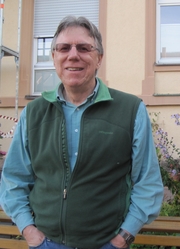Juveniles in Contemporary Society: Understanding Juvenile Justice and Delinquency, First Edition
Juveniles in Contemporary Society: Understanding Juvenile Justice and Delinquency, First Edition
Buy a new version of this textbook and receive access to the Connected eBook on Casebook Connect, including lifetime access to the online ebook with highlight, annotation, and search capabilities. Access also includes an outline tool and other helpful resources. Connected eBooks provide what you need most to be successful in your law school classes.
Juveniles in Contemporary Society: Understanding Juvenile Justice and Delinquency is an authoritative and well-crafted introduction to today's Juvenile Justice system. Using a thematic framework that supports analysis, the authors provide an integrated approach to topical coverage. Through clear writing, an interdisciplinary selection of sources, and thoughtful themes, authors Saundra D. Trujillo, L. Thomas Winfree, Jr., and Carlos E. Posadas illuminate the roles of history and theory in shaping today's juvenile justice system. Helpful pedagogy consistently supports understanding, retention, and review.
Professors and students will benefit from:
- Diverse author team who bring a variety of backgrounds and perspectives to the text.
- Theoretical Reflections boxes that integrate overarching themes throughout the text.
- Comparative and international insights grounded in the content of each chapter, with International Perspectives boxes included throughout the book.
- Understandable historical review of both juvenile justice and juvenile delinquency.
- Compelling vignettes that open each chapter, raising questions about the themes to be explored, illustrating basic concepts, and fueling class discussion
- Helpful graphs and tables illustrate the key topics.
- Excellent Critical Thinking questions at the end of each chapter.
- Chapter 5, Understanding Delinquency: Theories of Race, Ethnicity and Gender and Chapter 12, Race, Ethnicity, and Gender: Highlights from Recent Research explore the impacts of social constructions like gender, race, and ethnicity on youths' interactions with the justice system.
- Chapter 6, Delinquency Prevention addresses prevention and intervention from both philosophical and practical perspectives, discussing what works and what does not work and some of the reasons behind program success or failure.
- Chapter 11, Juvenile Probation and Aftercare provides thoughtful and in-depth discussion of this often-overlooked topic.
- Chapter 13, Youth Gangs and Violence highlights a national issue and shows how theory can inform research and how research can inform both policy and practice in the juvenile justice system.
Product Information
Juveniles in Contemporary Society: Understanding Juvenile Justice and Delinquency, First Edition
Connected eBook + Paperback
Juveniles in Contemporary Society: Understanding Juvenile Justice and Delinquency, First Edition
Connected eBook (Digital Only)
Juveniles in Contemporary Society: Understanding Juvenile Justice and Delinquency, First Edition
LLPOD


